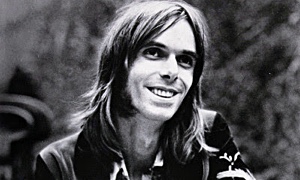Home » Jazz Articles » Film Review » The Rolling Stones: Licked Live In NYC
The Rolling Stones: Licked Live In NYC
 Rolling Stones
Rolling Stones Licked Live In NYC
Mercury Studios
2022
It is no little poetic justice, but also a perfectly appropriate gesture of respect on its own terms that, when The Rolling Stones first appear on the Madison Square Garden stage in Licked Live In NYC, vocalist Mick Jagger is swinging his arm up and down, right in time with the massive thud coming from the drums behind him manned by the late Charlie Watts. Whether or not intended as homage to the dear departed co-founder of the group who passed last year, it does signal how the playing of the group—expanded here to a baker's dozen musicians and singers—revolves around the latter's work on the kit as it's locked in with guitarist Keith Richards' instrument.
Such observations do not in any way disparage bassist Darryl Jones. He of the intimidating physical presence and membership of a Miles Davis band amplifies Richards and Watts' thunder on his own instrument, an effect reinforcing how those two charter members of the Stones lay the foundation of "Start Me Up." Guitarist Ronnie Wood maintains that precise but nonetheless abandoned atmosphere with his own torrid solo, while Chuck Leavell, former Allman Brother (circa Brothers and Sisters (Capricorn, 1973), unfurls a suitably turbulent organ backdrop.
Beginning what has continued in recent years as a concerted effort on the Stones' part to mix up otherwise predictable setlists, eternally-popular tunes such as that pair are part of a setlist here comprised of more than a few so-called 'deep cuts.' In a slightly tongue-in-cheek, countrified arrangement (superior to the superficial soundalikes "Far Away Eyes" or Dead Flowers"),"Let It Bleed" appears in close proximity to "Monkey Man," another cull from the album of that prior cut's same name, while "If You Can't Rock Me" from It's Only Rock 'n Roll (Rolling Stones, 1974) resides comfortably next to "Don't Stop," the single released from the compilation Forty Licks (Rolling Stones, 2002) this road work supported; hardly a profound song, its name could stand as the subtitle for this set as it is without the coy self-consciousness that has occasionally been the bane of the often-caricatured frontman's writing, singing and playing over the years.
Yet such relatively minor faults appear only rarely here, except in Jagger's transparently scripted between-song patter. In fact, the ebb and flow of the performance is unmistakably stable, even in the truncated 'Bonus Feature' of video from the Amsterdam stop of this year-plus tour of 2002-3. The intensity hardly flags over the course of the approximately two-hour duration of the concert and the extended improv is no exception on "Can't You Hear Me Knockin," where saxman Bobby Keys' gutsy solo leads the way for Jagger to take a provocative turn on harmonica. Given its late single set placement, "Sympathy For The Devil" might well be considered overkill, but instead turns into an opportunity for stage production to approach the sensory overload of the musicianship. It's also the audience's chance to surrender itself (if it hadn't already) to an abandoned fever pitch after "Brown Sugar" (which in a rare act of political correctness, the Stones no longer play) and before the hammer-down closing of "Jumpin' Jack Flash."
Not coincidentally, Richards' two-song spotlight—the reflective "Thru and Thru" and the uproarious "Happy"—encapsulates the astute pacing. It's a tension/release method the Rolling Stones perfected (how many?) years before, yet they manage to maintain it, quite likely through deceptively rambling rehearsals (like those included as another bonus on the DVD). Still, it's no small achievement in such cavernous environs as the legendary Big Apple venue, especially when Sheryl Crow appears as a guest on "Honky Tonk Women." (Lisa Fischer is much less disingenuous in her head-to-head vocal interplay with Jagger on "Gimme Shelter"). The sole breather, such as it is, comes when the band walks to and from the mid-floor stage for a quick mini-set during which, as elsewhere in the show, there's something unusual to look forward to: with Jagger on guitar, a core sextet savages "When The Whip Comes Down."
As on the blues romp of "Midnight Rambler," the theater is obvious, but not overly so, even as bandmembers (most often Wood) mug for the camera. Through its various transitions, the video pacing is no more predictable than the performance itself (an asset that comes to the fore even more prominently sans visuals on CD); producer/director Marty Callner maintains loyalty to the drama intrinsic to a Rolling Stones' performance, then at a four-decade milestone of their history (dull cover art seemingly straight from a TV image is not the man's domain).
Not surprisingly, the corps of vocalists (featuring one-time Beach Boy, Blondie Chaplin, as well as Bernard Fowler) plus a horn section led by the aforementioned late kindred spirit of Richard's, are most prominent on material from Exile on Main Street (Rolling Stones, 1972) like "Tumbling Dice." The highlighted presence of both those elements fortunately becomes a means to natural showmanship reaffirming the personnel's engagement, not for mere crowd-pleasing. Likewise, Sam Wheat's audio mix, subsequently mastered by Mazen Murad, provides just enough audio clarity to capture the various troupe members' contributions (how many Rolling Stones recordings boast a pristine clarity?).
With the continual/continuous release of vault titles such as Licked Live In NYC, it's almost as if the Rolling Stones are daring audiences to find fault with the consistency of their performances over al these many decades. With 2022 marking the iconic British band's sixtieth anniversary, it's a perspective worth considering, and not just in terms of the Stones' longevity: this title represents the sixth such release of its kind. Certainly, as issued in the chosen formats (CD, DVD, LP and Blu Ray), Mercury Studios and the artists are aiming to hit all the various markets and demographics.
Yet journalist Paul Sexton's touches upon a point he does not pursue to any great length during his essay within the sixteen-page booklet inside the tri-fold package. That is, this tour regularly included performances staged in stadiums, arenas and theaters, in the same general vicinity, with Boston and Chicago among the most prominent next to the group's native England). Given Jagger's education in the field, perhaps it's the economics that not only compel usage of content for the main program here from an HBO special broadcast, but also preclude audio and video recording from a small(er) venue (there is From The Vault: Sticky Fingers Live at the Fonda Theater (Eagle Rock, 2017).
Still, if the content and potential sales are there, a limited(?) edition package of such recorded performances from nearby locations in a given locale would be more than merely a curio. It would delineate in the clearest possible terms not only how the Rolling Stones so judiciously tailor their shows to the venue(s), but also how their collective musicianship is the fundamental source of excitement wherever they play.
Tags
Film Review
The Rolling Stones
Doug Collette
Kayos Productions, Inc.
Mercury Studios
Mick Jagger
Charlie Watts
Keith Richards
Miles Davis
Ronnie Wood
Chuck Leavell
Bobby Keys
About The Rolling Stones
Instrument: Band / ensemble / orchestra
PREVIOUS / NEXT
Support All About Jazz
 All About Jazz has been a pillar of jazz since 1995, championing it as an art form and, more importantly, supporting the musicians who make it. Our enduring commitment has made "AAJ" one of the most culturally important websites of its kind, read by hundreds of thousands of fans, musicians and industry figures every month.
All About Jazz has been a pillar of jazz since 1995, championing it as an art form and, more importantly, supporting the musicians who make it. Our enduring commitment has made "AAJ" one of the most culturally important websites of its kind, read by hundreds of thousands of fans, musicians and industry figures every month.























